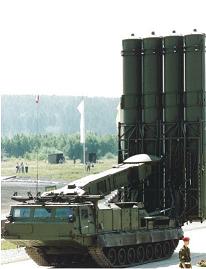The U.N. Security Council extended the stay of peacekeepers in Sudan’s western Darfur region by another year on Friday, telling the force to focus primarily on protecting civilians and aid deliveries.The 15-nation council unanimously approved the extension in a resolution that also condemned a recent upsurge of violence in Darfur and called on Khartoum to stop hindering the work of the joint African Union/U.N. peacekeeping force, or UNAMID.
The force, which currently stands at some 21,700 troops and police, has been struggling for three years with the Darfur crisis, which erupted when mostly non-Arab rebels took up arms in early 2003, accusing Khartoum of neglect.The government responded by mobilizing mostly Arab militias accused of a campaign of rape, murder and looting which created one of the world’s worst humanitarian crises. U.N. officials say up to 300,000 have died, while Khartoum says 10,000.
Extending UNAMID’s mandate until July 31, 2011, the Security Council called on it to give priority to protection of civilians and ensuring “safe, timely and unhindered humanitarian access” to an estimated 2 million refugees.It instructed U.N. officials in Sudan to develop a “comprehensive strategy” to achieve those targets.
Western diplomats said the force should put those goals ahead of reconstruction projects or a direct role in attempts to negotiate a political settlement, which they said UNAMID had been straying into and which Sudan’s government favored.Peace talks between Khartoum and Darfur rebels are going on in Qatar, but have made little progress in the absence of the two main rebel groups.
PERMANENT CEASEFIRE SOUGHT
The renewal of UNAMID’s mandate came as violence has risen in Darfur, a region the size of France. Eight people were reported killed and dozens injured this week at fighting in refugee camps between supporters and opponents of peace talks.UNAMID reported earlier this month that 221 people had died in tribal fighting and other violence in Darfur in June after nearly 600 deaths in May. UNAMID itself has lost 27 troops and police since it first deployed.The Security Council called on all parties to the conflict in Darfur to immediately end the violence and commit themselves to a “sustained and permanent ceasefire.”
The council was to discuss the violence in closed-door consultations later on Friday, diplomats said.The council also urged all parties to let UNAMID do its work and called on Khartoum to carry out promises to the United Nations on flight and equipment clearances and remove all obstacles to the use of the force’s aircraft.
In a report this month, U.N. Secretary-General Ban Ki-moon accused both Khartoum and rebel groups of restricting access to areas where there had been fighting. Sudan’s U.N. Ambassador Abdalmahmoud Abdalhaleem said his government had placed “no restrictions whatsoever” on UNAMID.Aid group Oxfam agreed with the Security Council that UNAMID should focus on security and stay out of reconstruction. “Mixing the work of blue helmets (peacekeepers) with aid groups will confuse Darfuris,” El Fateh Osman, Oxfam’s country director in Sudan, said in a statement.
Separately, U.N. Under-Secretary-General Susana Malcorra told reporters that the United Nations was preparing to expand its presence in semi-autonomous South Sudan to help prepare for next year’s referendum on possible secession for the South.She said U.N. personnel would also help with training of local security forces and monitoring for the referendum.(Reuters)



